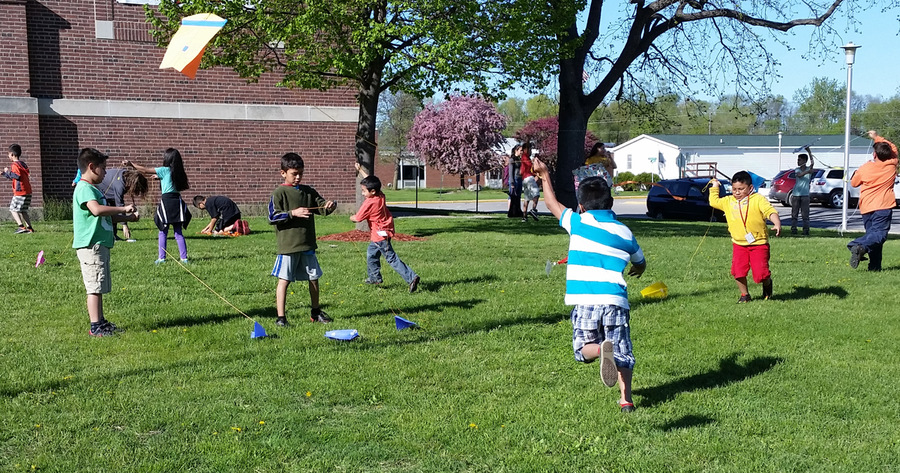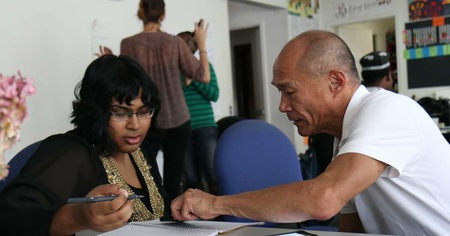Nancy Boehm, community learning center coordinator, offers an inside look.
How many English language learner (ELL) students does Raider's ARK serve, and from what backgrounds?
Raider's ARK serves approximately 65 kids each night—and 55 of those students have developing English skills. Our students are mostly Hispanic and have come directly from Mexico.
What specific challenges do your ELL students face?
Our students are very resilient, but many have witnessed many struggles and trauma in their lives. Not only can the language barrier with their classmates and teachers be frustrating, but it can be very tiring, too. In afterschool, we focus on fun. The learning and language acquisition develop along with their comfort and relationships with other students, mentors and staff.
What are some of the ways your program creatively integrates literacy in a variety of activities?
FUN! We play a wide variety of games for relationship building and literacy development. For example, Bingo and musical chairs help develop vocabulary; Stop Drop and Read pairs higher and lower level learners for practice; our famous Karaoke allows our kids to unleash their superstar and have some fun with music and reading. We build literacy into most of our activities and keep activities level-based for continual learning.
Could you share about your students' "families"? How do these family groups help students learn?
Raider's ARK students sit, eat and play as "families" who rotate every six to eight weeks. These families consist of students in grades one through eight working and learning together.
When they have snacks, the older students help the younger students, and they really get to know each other. We have "family-based" activities every day where they learn to cheer each other on and find each other's strengths. The idea is that families are safe places where you can be yourself. You can work on your English, reading and math with a friend who won't judge you.
This model has worked really well in our program and our students have friends in all grades, versus just getting to know just their classmates.
What are "We Choose Wednesdays"—and how do they foster a student interest in learning?
"We Choose Wednesdays" are an opportunity for students to lend their voice to Raider's ARK programming. We ask teachers, community members and business owners to volunteer and share an activity or hobby that they are passionate about.
These activities have included yoga, photography, board games, jewelry making, baking, fitness, computer coding, construction, aviation, dancing, rocket making and more. For an hour each week for four weeks, students work in small groups and get the opportunity to try out something new and learn a new skill set—all while developing a relationship with a new mentor. The adults who volunteer with our students say they are so happy to share their passion with others and feel very appreciated by our students. It is a win-win in our community!
What does it mean for your program to be a 2017 recipient of the Dollar General Afterschool Literacy Award? How will this help your program?
Raider's ARK has an amazing staff and it was heartfelt to receive this award on behalf of their efforts, enthusiasm and dedication to our students and their families. When I told the staff about receiving the award and the opportunity to present in Washington, D.C., they said they were all coming with me! I mentioned that we couldn't cover their travel costs, but they all agreed that we are a team and we were doing this together.
Six staff members, one volunteer and four of our students attended the Afterschool Alliance Challenge and presented on our program and the specific needs of our small rural, Midwest community and our ELL programming.
The local and national attention that this honor provided has been good for our program to be recognized not only in our community, but in our state. We have continued to lobby state legislators for afterschool program funding and support.
We also had the opportunity to meet with other award-winning programs and learn new strategies and practices from them. It was truly an honor to be recognized along with Sil Ganzo from ourBRIDGE for Kids and Flo Plagenz with ESL Afterschool Communities.
Our program will continue to grow and be better with these new resources and friendships.
Courtesy of Nancy Boehm.




